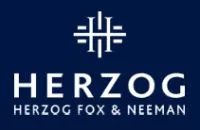On January 1, 2019, the Knesset approved Amendment No. 5 to Israel's Copyright Law, 2007 (respectively, the "Amendment" and the "Law").
The Amendment adds four main matters to the Law:
1. Indirect copyright infringement by making available to the public;
2. Restriction of access to an internet site by court order;
3. Exposing the identity of copyright infringers on the internet; and
4. Use of "orphan" works.
Indirect Copyright Infringement by Making Available to the Public (adding Section 48A to the Law):
Under new Section 48A a person will be considered an indirect infringer if they have, by way of business and for profit, facilitated public access to a copyright-protected work that had previously been made available to the public in an infringing manner, provided that at the time of performing such action they knew, or should have known, of the infringing nature of the manner in which the work had been made available.
According to the explanatory notes to the Amendment bill and to discussions held in the Knesset, this section does not impose liability on site owners, forum managers or other intermediary entities ("Intermediaries") for the actions of their users, but is rather intended to fight piracy websites that provide links to infringing content. The wording of this section was nonetheless subject to severe criticism from Intermediaries, human-rights organizations, and internet users, who argued that it constitutes censorship of the internet and that it may ultimately apply to Intermediaries, even if that was not its intent.
The Amendment further provides that no statutory damages may be imposed upon a person who has made a work of art available to the public online (or allowed others to do so) in certain circumstances, including where the infringement was not for commercial purposes, or where the entity who has made the work available is a society or other non-profit organization, an educational institution, a library, or a museum.
Restriction of Access to an Internet Site by Court Order (adding Section 53A to the Law):
New Section 53A allows the District Court to order an internet service provider to limit access to an internet site or other source of content, the majority of the content on which constitutes copyright infringement, or where an action taken in connection with such source of content would constitute indirect infringement. In deciding whether to grant the order and determining its terms, the Court will consider, inter alia, the effect of the order on the public, the severity of the alleged infringement, whether the order is required in order to prevent the infringement, the efficacy of other remedies and the possible harm to the privacy of internet users.
The section establishes procedural rules for applying for such an order and imposes the costs of carrying out the order on the applicant.
Exposing the Identities of Copyright Infringers on the Internet (adding Part H1 to the Law):
Under this new part of the Law, the District Court can order a respondent to divulge the identity and user information of an unknown person whose actions have infringed the petitioner's copyright online. To the extent that the Court is persuaded that there is an actual apprehension that the actions in question constitute an infringement, and that there is a reasonable chance that the petitioner's claim against the unknown person will be decided in the petitioner's favor, the order will be given.
This part of the Law will enter into force nine months from the date of publication of the Amendment.
Use of Orphan Works
Where it has not been possible, upon duly diligent inquiry, to locate the copyright owner in a certain work, the Amendment allows the use of such work as long as the rights-holder remains unknown, and grants protection against claims of breach of moral rights in the work.
The section does, however, impose a duty upon the user of the orphan work to specify that the use is being made under this provision and to provide contact details so that the identity of the creator of the work can be made known to the user. If the use in question is commercial use, the user is also required to publish a notice on the internet before making use of the work, and if the creator is found, they are entitled to be paid appropriate royalties from the date of first use of the work.
The Amendment conforms to the worldwide trend, particularly in the European Union, towards increased enforcement against piracy websites. In this same connection, mention is made of the new proposed EU Directive (found here) which, inter alia, may require certain Intermediaries to implement technological means to prevent access to infringing content.
Please do not hesitate to contact us with any questions or if you require any clarification regarding any of the matters above.
The content of this article is intended to provide a general guide to the subject matter. Specialist advice should be sought about your specific circumstances.




